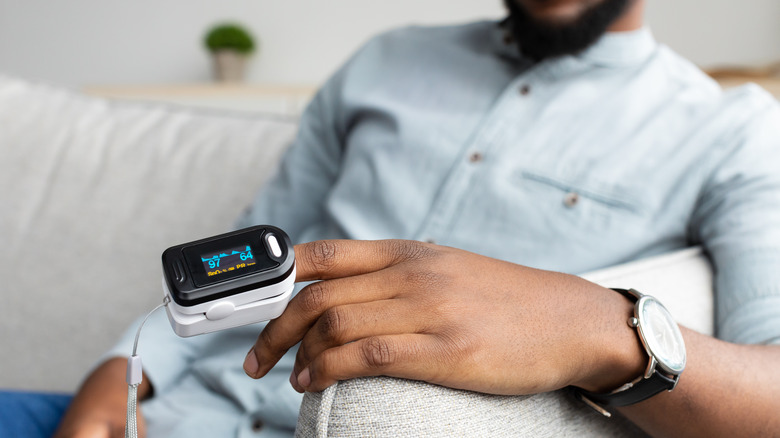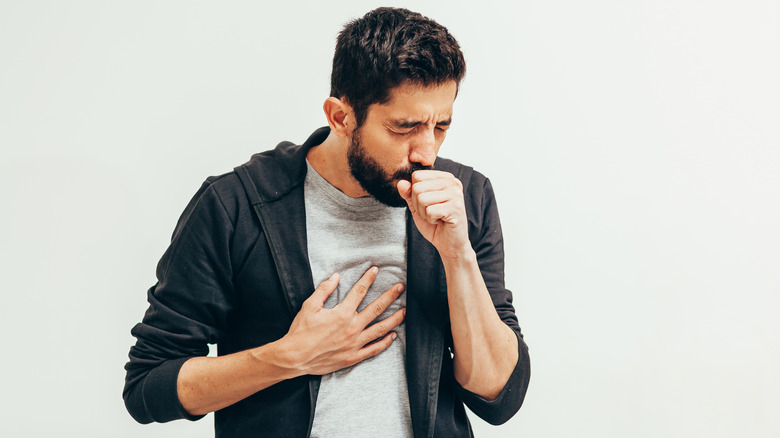Study Finds Pulse Oximeters Are Less Accurate In People With Dark Skin Pigmentation
A pulse oximeter is a small, handheld device that uses light sensors to measure the amount of oxygen in the blood (via Healthline). It is commonly used in hospitals and clinics to monitor patients' oxygen levels, which can be an important indicator of their overall health. However, a recent study published in JAMA Internal Medicine found that pulse oximeters are often less accurate in Black, Asian and Hispanic patients. The study looked at patients being treated for COVID-19, a virus that can significantly impact someone's lungs and oxygen levels. Black and Hispanic people are also more likely to be hospitalized and die from COVID-19.
"This and other studies show that pulse oximeter readings in persons with more pigmented skin can be lower than the readings of those with lighter skin," said Dr. Laura Vaughan, an internal medicine physician and clinical assistant professor of primary care medicine and population health at Stanford Medicine. "So, both providers and persons using pulse oximeters at home and for treatment interventions need to be aware of this difference when using this data." Pulse oximetry is used in the process of deciding how to treat a patient with COVID. It is important that everyone, including both doctors and people testing themselves at home, are aware of this information. Doctors should use multiple testing methods to determine the severity of a person's COVID infection and how to best treat them.
What to know about COVID-19 and oxygen levels
Although the COVID-19 vaccine and various treatments have allowed many people to move forward with their lives, COVID is still very present. According to the CDC, the United States is still averaging over 100 deaths from the virus each day. Although being fully vaccinated offers protection against the virus, it does not make you immune. Both vaccinated and unvaccinated people should be aware of the risks of getting COVID.
While COVID-19 can have many symptoms, lung and breathing problems are among the most serious. It is common for people with COVID to experience a drop in their oxygen levels, even if they don't notice symptoms like shortness of breath or dizziness (via Minnesota Department of Health). It is a good idea to check your oxygen levels with a pulse oximeter regularly if you have COVID in order to keep track of your oxygen levels. If your levels are less than 95%, you should contact your healthcare professional for advice. If you have low oxygen levels, you can be treated with supplemental oxygen. If you don't have a pulse oximeter, be aware of symptoms of low oxygen levels, which include shortness of breath, nausea, dizziness, and chest pain. If you experience any of these symptoms, seek medical attention immediately. The earlier you can identify a health problem, the more likely your doctors are to successfully treat it.


